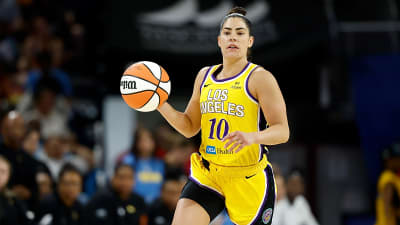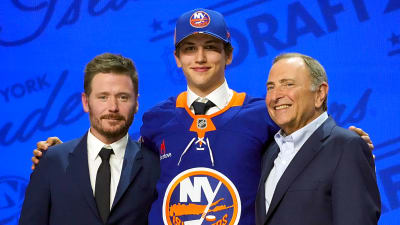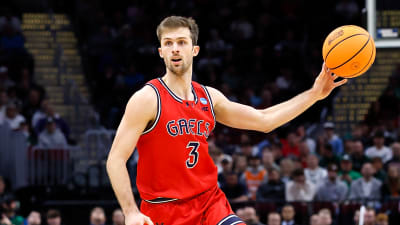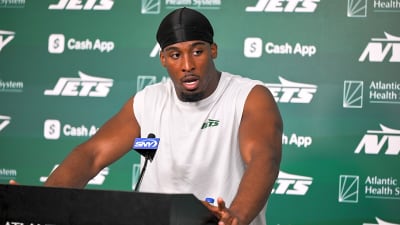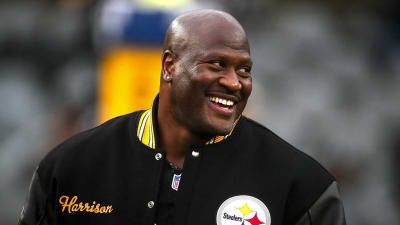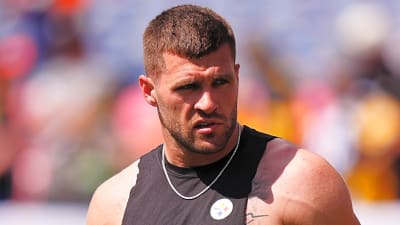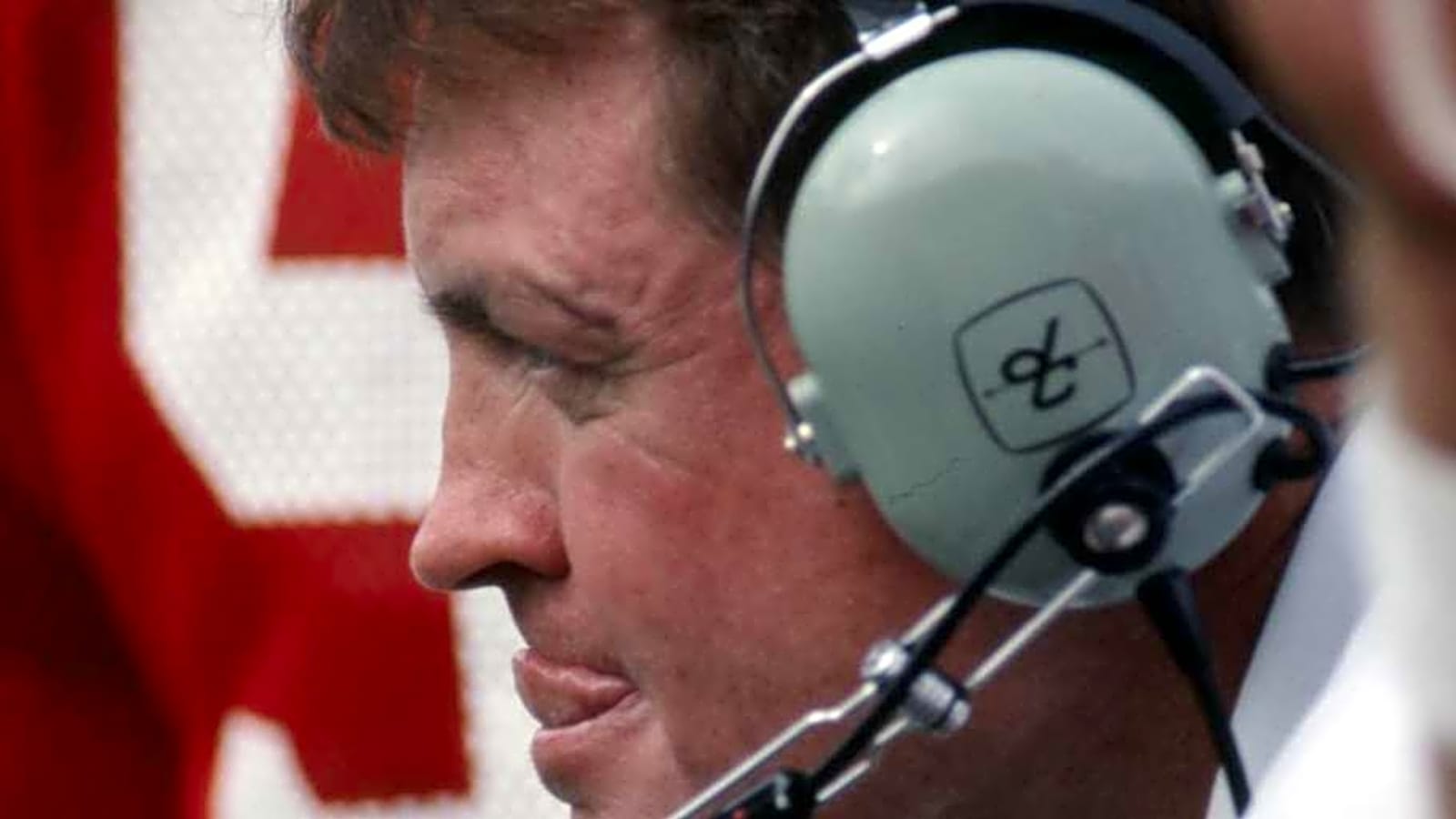
It’s funny. Growing up in Lincoln during the 1980s and 1990s, I saw plenty of successful Nebraska football teams, including, obviously, the three national championship teams of the ‘90s. Even with all of that success, I remember a distinct image of Tom Osborne being stoic, and his teams having a reputation for being…dare I say…boring.
They ran the ball with ruthless efficiency, racked up yards and points, and played excellent defense. But in the era when things like Florida’s Fun ‘n Gun offense and Houston’s Run and Shoot were making headlines, Nebraska’s way of doing things was considered by some to be old fashioned.
It’s funny to think about that when you consider how much of an innovator Osborne actually was.
This week, on the Common Fan Podcast, we launched a series of episodes focused on Osborne’s coaching career. The first episode, The Fateful Promotion, focuses on TO’s time as an assistant to Devaney, and specifically hones in on his time as offensive coordinator, which began in 1968.
One of the themes that emerged repeatedly as we talked to numerous people about Coach Osborne was how open minded he was. Creative. Flexible. Open to trying new things. As head coach, his program continued to evolve over two and a half decades, but the signs of his unique and dynamic mind were there from the start.
Today we’ll look at the numerous innovations TO brought to Nebraska football (and by extension, all of college football).
Ingenuity on Offense
Let’s set the stage. Nebraska was coming off two disappointing seasons in 1967 and 1968. The offense had grown stale. Devaney, as part of a broader overhaul of the program, named two young assistants—Tom Osborne and Monte Kiffin—as offensive and defensive coordinators. In that moment, the future of Nebraska football was handed to a pair of relative unknowns.
TO scrapped Devaney’s old school power run game–as Brandon Vogel described it, blunt force trauma–and introduced a variation of the I-formation. It was run out of an unbalanced line, and Osborne created the wingback position—a hybrid player who could line up wide, motion into the backfield, catch passes, run counters, and block in space. All these years of watching Husker football, I never realized Tom Osborne actually invented the position. It gave the Huskers flexibility other teams didn’t have. Johnny Rodgers is certainly thankful.
Osborne was also extremely forward-thinking when it came to audibles. Every play in the playbook contained the option to audible to something else out of the same formation. It became the quarterback’s job to assess the defense and change plays at the line of scrimmage if needed. Of course, he didn’t invent the audible, and it may not sound revolutionary in 2025. But it was much less common in college football in those days, and he was well ahead of his time.
By 1970, that new offense helped power Nebraska to its first national championship. They did it again in 1971. Devaney’s decision was validated, and Osborne was beginning to lay the foundation for what he would ultimately build for 25 years as head coach.
The Country’s First Ever Strength and Conditioning Program
Most Husker fans know Nebraska’s history as a pioneer in the field of strength and conditioning. What I didn’t realize–but should not be the least bit surprising–is that Osborne was integral to developing the Husker Power program from its earliest days.
An injured pole vaulter named Boyd Epley was spending a lot of time lifting weights, and had transformed his body by doing so. Some football players took notice, began following him around the weight room, and eventually asked Epley to show them how to lift. Osborne got wind of this development. At a time when most coaches thought lifting would make players “muscle-bound and slow,” TO kept an open mind.
Eventually, Osborne called Epley and asked him to come to the football office to explain more about what he was doing. TO helped convince Devaney to let Epley work with the football players. Devaney allowed it, although was not convinced at the outset, exhorting: “If anyone gets slower, you’re fired.”
Ultimately, Boyd Epley was paid $2/hour for six hours per week to become the first ever strength coach in college football history. Epley would essentially invent the strength and conditioning field, giving Nebraska a key advantage on the football field and leading all other college programs to follow suit.
Coast-to-Coast Recruiting Efforts
Osborne was also among the first to go coast-to-coast for junior college talent, flying out to California and asking coaches face-to-face: “Got anyone who can play?” One of those guys, Bob Newton, would become an All-American and a crucial piece of the 1970 national title team. Osborne’s approach helped to turn Nebraska into a national program.
While every Nebraska fan loves a good home grown walk-on story, some of the Big Red’s best players have come from out of state. For the remainder of Osborne’s time as an assistant, and then as head coach in Lincoln, the Husker program would be fueled by talent from California to New Jersey.
Unmatched Work Ethic
TO’s fingerprints are all over Nebraska’s first two national championship teams. By the time he took over as head coach in 1973, the groundwork was already in place for the next 25 years. The ideas he introduced as an assistant didn’t just spark success in the moment. They ignited a fire that would burn for decades to come.
Of course, it should be noted that what underscored all of his success was a tireless work ethic. He was a fierce competitor who did not like to lose, and that’s what drove him. He spent hours upon hours watching film. He turned over every rock in search of ways to improve the program. And he continued to evolve and innovate, all the way through his final national championship winning team in 1997.
Let us know what you think, Common Fans. We’d love to hear your contribution to this discussion. Send us an email at commonfangbr@gmail.com, or message us on Twitter, Facebook, or Instagram.
PODCAST EPISODE: TO: The Fateful Promotion
- Watch on YouTube; Listen on Apple; Listen on Spotify; Listen on Amazon Music; Listen on Pandora.
- Visit the Common Fan website here.
More from Nebraska on SI
More must-reads:
- Auburn earns major recruiting win, flips four-star QB from Penn State
- Giants seemingly have clear offensive leader amid Russell Wilson, Jaxson Dart chatter
- The 'No. 2 NBA Draft picks' quiz
Breaking News
Trending News
Customize Your Newsletter
 +
+
Get the latest news and rumors, customized to your favorite sports and teams. Emailed daily. Always free!

